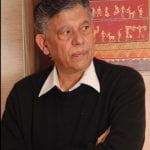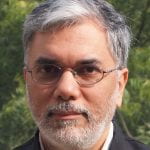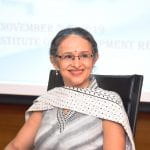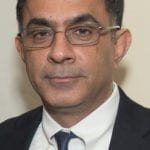This was the ninth webinar in the “Envisioning India” series, co-sponsored by the Sigur Center for Asian Studies and the Institute for International Economic Policy. This is a platform for dialogue and debate. We invited you to engage with us in this series of important discussions.
The “Envisioning India” series is organized under the stewardship of IIEP Co-Director James Foster, Oliver T. Carr, Jr. Professor of International Affairs and Professor of Economics, and IIEP Distinguished Visiting Scholar Ajay Chhibber. The ninth event featured Harsha Vardhana Singh, Chairman, IKDHVAJ Advisers LLP and Former Deputy Director-General at WTO, discussing “India’s Trade Policy: Past, Present, Future.” Dean Alyssa Ayres (GWU), Judith Dean (Brandeis), and Rajeev Kher provided discussant remarks. IIEP Co-Director Jay Shambaugh moderated.
India liberalised its trade regime in 1991 as part of a larger reform initiative. India’s trade surged and the economy grew to become the world’s 5th largest in 2019. Since 2018, India’s trade regime has become more protectionist with an aim to stem the trade deficit and promote domestic industry. India’s concern with a high trade deficit, in particular with China and ASEAN, has also impacted its approach to trade agreements. More recently, India opted out of RCEP. In 2020, India announced a new program of self-reliance (Atmanirbharta). Some fear that this is a signal of turning further inward. Yet India’s stated goals are to attract more FDI – especially as an alternative to China, enter global value chains, and encourage exports. How should we assess India’s recent policy changes and reconcile these shifts? What are the likely pathways for India’s future trade stance? Will India seek to substantively enhance growing US-India trade ties? Will its renewed interest in trade agreements with others such as the EU move forward giving some substantive results? Is it permanently out of RCEP? What steps by other nations could facilitate India’s increased trade engagements with major economies? What choices India makes will affect India and the world. Our distinguished speakers addressed these and related issues in this 9th talk on Envisioning India.
About the speakers:
 Harsha Vardhana Singh is Chairman, IKDHVAJ Advisers LLP, a consulting firm working on trade policy, industrial policy and regulatory issues. He has been a member of High-Level Expert Groups within India and abroad that inter alia address policy concerns related to trade policy, industrial policy, competition and regulatory policy. Earlier, he has worked at the GATT/WTO for 20 years (eight years as Deputy Director General, WTO), was Secretary Telecom Regulatory Authority of India, Executive Director of Brookings India, Senior Fellow at Think Tanks in Switzerland and Canada, taught at Universities in the US and China, and been Chair/secretary of GATT/WTO Dispute Settlement Panels. He has a Ph.D. in Economics from University of Oxford, where he went as a Rhodes Scholar from India in 1979.
Harsha Vardhana Singh is Chairman, IKDHVAJ Advisers LLP, a consulting firm working on trade policy, industrial policy and regulatory issues. He has been a member of High-Level Expert Groups within India and abroad that inter alia address policy concerns related to trade policy, industrial policy, competition and regulatory policy. Earlier, he has worked at the GATT/WTO for 20 years (eight years as Deputy Director General, WTO), was Secretary Telecom Regulatory Authority of India, Executive Director of Brookings India, Senior Fellow at Think Tanks in Switzerland and Canada, taught at Universities in the US and China, and been Chair/secretary of GATT/WTO Dispute Settlement Panels. He has a Ph.D. in Economics from University of Oxford, where he went as a Rhodes Scholar from India in 1979.
As WTO Deputy Director General, he had direct responsibility for Trade in Services, Trade in Agriculture, Sanitary and Phytosanitary Measures, Trade and Environment, Technical Barriers to Trade, Chairman of the Groups on E-Commerce Program and the Cotton Development Agenda. As Economic Advisor and Secretary of Telecom Regulatory Authority of India, he was part of the small group of officials that conceptualized and implemented a number of telecom sector policy reforms, resulting in large growth in the sector.
His recent engagements include: Senior Fellow, Council on Emerging Market Enterprises, The Fletcher School, Tufts University, USA (ongoing); Member of the Advisory Board of UNCTAD’s “Transnational Corporations Journal” (ongoing); Member of the Confederation of Indian Industries (CII) International Trade Policy Council (ongoing); Non-Resident Senior Fellow, South Asia Center, Atlantic Council (ongoing); Senior Research Affiliate, Berkeley APEC Study Center, US (ongoing); Member, High Level Advisory Group on International Trade, established by Government of India; Member, Competition Law Review Committee to revise the Competition Act, established by Government of India; Member, Expert Enquiry Committee Set Up by UK All Party Parliamentary Group on Trade Out of Poverty on “Can the Commonwealth help countries trade out of poverty?”; Member, High Level Board of Experts on the Future of Trade Governance, set up by Bertelsmann Stiftung; Senior Adviser to the Global Commission on Internet Governance on the topic, “Governance of International Trade and the Internet: Existing and Evolving Regulatory Systems”; Senior Advisor, Asia Society Policy Institute, on the topic “India and APEC: Charting a Path to Membership.”
 Alyssa Ayres was appointed Dean of the Elliott School of International Affairs at George Washington University effective February 1, 2021. Ayres is a foreign policy practitioner and award-winning author with senior experience in the government, nonprofit, and private sectors. From 2013 to 2021, she was senior fellow for India, Pakistan, and South Asia at the Council on Foreign Relations (CFR), where she remains an adjunct senior fellow. From 2010 to 2013 Ayres served as deputy assistant secretary of state for South Asia. During her tenure at the State Department in the Barack Obama administration, she covered all issues across a dynamic region of 1.3 billion people at the time (Bangladesh, Bhutan, India, Maldives, Nepal, and Sri Lanka) and provided policy direction for four U.S. embassies and four consulates.
Alyssa Ayres was appointed Dean of the Elliott School of International Affairs at George Washington University effective February 1, 2021. Ayres is a foreign policy practitioner and award-winning author with senior experience in the government, nonprofit, and private sectors. From 2013 to 2021, she was senior fellow for India, Pakistan, and South Asia at the Council on Foreign Relations (CFR), where she remains an adjunct senior fellow. From 2010 to 2013 Ayres served as deputy assistant secretary of state for South Asia. During her tenure at the State Department in the Barack Obama administration, she covered all issues across a dynamic region of 1.3 billion people at the time (Bangladesh, Bhutan, India, Maldives, Nepal, and Sri Lanka) and provided policy direction for four U.S. embassies and four consulates.
Her work focuses primarily on India’s role in the world and on U.S. relations with South Asia in the larger Indo-Pacific. Her book about India’s rise on the world stage, Our Time Has Come: How India is Making Its Place in the World, was published by Oxford University Press in January 2018 and was selected by the Financial Times for its “Summer 2018: Politics” list. An updated paperback edition was released in 2019. She served as the project director for the CFR-sponsored Independent Task Force on U.S.-India relations, and, from 2014 to 2016, as the project director for an initiative on the new geopolitics of China, India, and Pakistan supported by the MacArthur Foundation.
 Judith Dean is the Professor of International Economics in the Brandeis International Business School. Her research focuses on international trade and economic development. Much of her work examines the relationship between trade and the environment. In a series of empirical studies using Chinese data, she has been exploring the possibility that trade growth, foreign investment and production fragmentation may have beneficial effects on the environment. In other work, she studies global value chain trade, non-tariff barriers. and trade preferences for developing countries. Her new work on India explores the impact of trade liberalization on Indian poverty. Judy came to Brandeis from the US International Trade Commission (USITC) where she was a Senior International Economist in the Research Division of the Office of Economics. Prior to joining the USITC, Judy was Associate Professor of Economics at SAIS, Johns Hopkins University, and Assistant Professor at Bowdoin College. She has been a consultant to the World Bank and the OECD, and a Visiting Scholar at the Indian Statistical Institute, New Delhi, India. She has also helped facilitate research collaboration for the USITC with Tsinghua University and the India Development Foundation. Judy was named one of six Visiting Scholars in the Clayton Yeutter International Trade Program, University of Nebraska, 2012-13. In 2018, she gave the 4th Annual John Mason Lecture at Gordon College in 2018. Judy recently completed many years of service on the Board of Directors of World Relief, and the Board of Trustees of Gordon College.
Judith Dean is the Professor of International Economics in the Brandeis International Business School. Her research focuses on international trade and economic development. Much of her work examines the relationship between trade and the environment. In a series of empirical studies using Chinese data, she has been exploring the possibility that trade growth, foreign investment and production fragmentation may have beneficial effects on the environment. In other work, she studies global value chain trade, non-tariff barriers. and trade preferences for developing countries. Her new work on India explores the impact of trade liberalization on Indian poverty. Judy came to Brandeis from the US International Trade Commission (USITC) where she was a Senior International Economist in the Research Division of the Office of Economics. Prior to joining the USITC, Judy was Associate Professor of Economics at SAIS, Johns Hopkins University, and Assistant Professor at Bowdoin College. She has been a consultant to the World Bank and the OECD, and a Visiting Scholar at the Indian Statistical Institute, New Delhi, India. She has also helped facilitate research collaboration for the USITC with Tsinghua University and the India Development Foundation. Judy was named one of six Visiting Scholars in the Clayton Yeutter International Trade Program, University of Nebraska, 2012-13. In 2018, she gave the 4th Annual John Mason Lecture at Gordon College in 2018. Judy recently completed many years of service on the Board of Directors of World Relief, and the Board of Trustees of Gordon College.
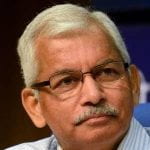 Rajeev Kher superannuated as Commerce Secretary, Government of India in 2015 after a career of 35 years in the Indian Administrative Service. He then worked as a Member in the Competition Appellate Tribunal for two years. He has now associated himself with some leading think tanks. He also advises a Private Equity. His field of experience includes broad areas of International Trade and Commerce, Competition Law and Policy, Sustainable Development Policy, Environmental Management, Global Governance, particularly with reference to trade and environment and Decentralised Governance. He has held several important assignments in the Central Government and the State Government of UP. Some of the more prominent once include a tenure of 9 years in the Department of Trade and Commerce, a stint of 8 years in the Ministry of Environment and The Energy and Resources Institute (TERI) in Delhi and senior level assignments in the Departments of Renewable Energy, Finance, Planning and Science and Technology, besides administering two very challenging charges of District Magistrates. He is credited with bringing in the first comprehensive Foreign Trade Policy for India. His vision on international trade issues has been well respected by the stakeholder community within India and abroad. He led negotiations on behalf of his country for Trade Agreements with major blocks such as EU, EFTA, RCEP and ASEAN. His initiatives to bring discourse on India’s competitiveness in Trade in Services, evolution of Policy on Technical Regulations and Standards and India’s position on the Global and Regional value chains in the forefront of Policy making are much recognised by the stakeholder community. He is also credited with hand holding the Pharmaceutical sector in its pursuit to become global leader in Generic Medicine and his work is highly appreciated by the industry. He has published work on India’s Patent Policy, Trade Policy, WTO Dispute Settlement Mechanism, Product standards and Technical Regulations and several other related areas.
Rajeev Kher superannuated as Commerce Secretary, Government of India in 2015 after a career of 35 years in the Indian Administrative Service. He then worked as a Member in the Competition Appellate Tribunal for two years. He has now associated himself with some leading think tanks. He also advises a Private Equity. His field of experience includes broad areas of International Trade and Commerce, Competition Law and Policy, Sustainable Development Policy, Environmental Management, Global Governance, particularly with reference to trade and environment and Decentralised Governance. He has held several important assignments in the Central Government and the State Government of UP. Some of the more prominent once include a tenure of 9 years in the Department of Trade and Commerce, a stint of 8 years in the Ministry of Environment and The Energy and Resources Institute (TERI) in Delhi and senior level assignments in the Departments of Renewable Energy, Finance, Planning and Science and Technology, besides administering two very challenging charges of District Magistrates. He is credited with bringing in the first comprehensive Foreign Trade Policy for India. His vision on international trade issues has been well respected by the stakeholder community within India and abroad. He led negotiations on behalf of his country for Trade Agreements with major blocks such as EU, EFTA, RCEP and ASEAN. His initiatives to bring discourse on India’s competitiveness in Trade in Services, evolution of Policy on Technical Regulations and Standards and India’s position on the Global and Regional value chains in the forefront of Policy making are much recognised by the stakeholder community. He is also credited with hand holding the Pharmaceutical sector in its pursuit to become global leader in Generic Medicine and his work is highly appreciated by the industry. He has published work on India’s Patent Policy, Trade Policy, WTO Dispute Settlement Mechanism, Product standards and Technical Regulations and several other related areas.
About the Moderator:

James E. Foster is the Oliver T. Carr, Jr. Professor of International Affairs, Professor of Economics, and Co-Director of the Institute for International Economic Policy at the George Washington University. He is also a Research Associate at the Oxford Poverty and Human Development Initiative at Oxford University. Professor Foster’s research focuses on welfare economics — using economic tools to evaluate and enhance the wellbeing of people. His work underlies many well-known social indices including the global Multidimensional Poverty Index (MPI) published annually by the UNDP in the Human Development Report, dozens of national MPIs used to guide domestic policy against poverty, the Women’s Empowerment in Agriculture Index (WEAI) at USAID, the Gross National Happiness Index of Bhutan, the Better Jobs Index of the InterAmerican Development Bank, and the Statistical Performance Index of the World Bank. Prof. Foster received his PhD in Economics from Cornell University and has a Doctorate Honoris Causa from Universidad Autónoma del Estado Hidalgo (Mexico).
This event and seminar series was jointly organized with the Oxford Poverty & Human Development Initiative (OPHI) and the UNDP Human Development Report Office.
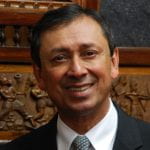 Jaimini Bhagwati is currently a Distinguished Fellow at the Centre for Social and Economic Progress (CSEP), Chairman of the Infrastructure Development Finance Corporation (IDFC) Asset Management Trustee Company, and Board member of IDFC Limited. Amb. Bhagwati was India’s High Commissioner to the United Kingdom and India’s Ambassador to the European Union, Belgium, and Luxembourg. He has held senior positions in the Indian Ministry of External Affairs, Ministry of Finance, Department of Atomic Energy and the World Bank Treasury. His responsibilities at the World Bank included bond funding including execution of over-the-counter derivatives transactions. Between 2013-2018 Amb. Bhagwati was the Reserve Bank of India Chair Professor at ICRIER. Amb. Bhagwati was educated at St. Stephen’s College, New Delhi, Tufts University, and Massachusetts Institute of Technology (MIT), USA.
Jaimini Bhagwati is currently a Distinguished Fellow at the Centre for Social and Economic Progress (CSEP), Chairman of the Infrastructure Development Finance Corporation (IDFC) Asset Management Trustee Company, and Board member of IDFC Limited. Amb. Bhagwati was India’s High Commissioner to the United Kingdom and India’s Ambassador to the European Union, Belgium, and Luxembourg. He has held senior positions in the Indian Ministry of External Affairs, Ministry of Finance, Department of Atomic Energy and the World Bank Treasury. His responsibilities at the World Bank included bond funding including execution of over-the-counter derivatives transactions. Between 2013-2018 Amb. Bhagwati was the Reserve Bank of India Chair Professor at ICRIER. Amb. Bhagwati was educated at St. Stephen’s College, New Delhi, Tufts University, and Massachusetts Institute of Technology (MIT), USA. Sadanand Dhume (Senior Fellow, American Enterprise Institute) is a Senior Fellow at the American Enterprise Institute, where he writes on South Asian political economy, foreign policy, business, and society, with a focus on India and Pakistan. Mr. Dhume has served as India bureau chief of the Far Eastern Economic Review and as Indonesia correspondent of FEER and the Wall Street Journal – Asia, and is currently a South Asia columnist for the Wall Street Journal. Previously, he was Bernard Schwartz Fellow at the Asia Society in Washington, D.C. He has written articles and op-eds for Foreign Policy, Forbes, Commentary, YaleGlobal, the Washington Post, and other publications. His television appearances include CNN, PBS, BBC World, Al Jazeera International, CNBC Asia and ABC Television. His political travelogue about the rise of radical Islam in Indonesia, My Friend the Fanatic: Travels with a Radical Islamist, has been published in four countries. His upcoming book discusses the rise of a new right in India and its impact on Indian democracy.
Sadanand Dhume (Senior Fellow, American Enterprise Institute) is a Senior Fellow at the American Enterprise Institute, where he writes on South Asian political economy, foreign policy, business, and society, with a focus on India and Pakistan. Mr. Dhume has served as India bureau chief of the Far Eastern Economic Review and as Indonesia correspondent of FEER and the Wall Street Journal – Asia, and is currently a South Asia columnist for the Wall Street Journal. Previously, he was Bernard Schwartz Fellow at the Asia Society in Washington, D.C. He has written articles and op-eds for Foreign Policy, Forbes, Commentary, YaleGlobal, the Washington Post, and other publications. His television appearances include CNN, PBS, BBC World, Al Jazeera International, CNBC Asia and ABC Television. His political travelogue about the rise of radical Islam in Indonesia, My Friend the Fanatic: Travels with a Radical Islamist, has been published in four countries. His upcoming book discusses the rise of a new right in India and its impact on Indian democracy.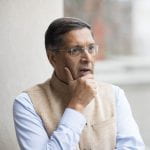 Arvind Subramanian, Chief Economic Adviser (CEA) to the Government of India between 2014 and 2018, is now Senior Fellow, Brown University’s Watson Institute for International and Public Affairs and Distinguished Senior Fellow, Center for Global Development. Previously, he was Professor at Ashoka University (2020-21), taught at the Harvard Kennedy School (2018-2020), and was the Dennis Weatherstone Senior Fellow at the Peterson Institute for International Economics (2011-2014). Foreign Policy magazine named him as one of the world’s top 100 global thinkers in 2011. As CEA, he oversaw the publication of the annual Economic Survey of India, which became a widely read document on Indian economic policy and development. For example, the 2018 Survey had 20 million views from over 190 countries in its first year of publication. Among the major ideas and policies he initiated and helped implement were a simplified goods and services tax (GST), attempts to tackle the Twin Balance Sheet challenge, creating the financial and digital platform for connectivity (the so-called JAM trinity), charting a new fiscal framework, and Universal Basic Income. Announcing his departure as CEA, the former Finance Minister, Mr. Arun Jaitley wrote a Facebook post,
Arvind Subramanian, Chief Economic Adviser (CEA) to the Government of India between 2014 and 2018, is now Senior Fellow, Brown University’s Watson Institute for International and Public Affairs and Distinguished Senior Fellow, Center for Global Development. Previously, he was Professor at Ashoka University (2020-21), taught at the Harvard Kennedy School (2018-2020), and was the Dennis Weatherstone Senior Fellow at the Peterson Institute for International Economics (2011-2014). Foreign Policy magazine named him as one of the world’s top 100 global thinkers in 2011. As CEA, he oversaw the publication of the annual Economic Survey of India, which became a widely read document on Indian economic policy and development. For example, the 2018 Survey had 20 million views from over 190 countries in its first year of publication. Among the major ideas and policies he initiated and helped implement were a simplified goods and services tax (GST), attempts to tackle the Twin Balance Sheet challenge, creating the financial and digital platform for connectivity (the so-called JAM trinity), charting a new fiscal framework, and Universal Basic Income. Announcing his departure as CEA, the former Finance Minister, Mr. Arun Jaitley wrote a Facebook post, 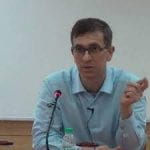
 Dr. Kalpana Kochhar is Director, Development Policy and Finance at the Bill and Melinda Gates Foundation. Prior to taking this position, she spent 33 years at the IMF, ending her career there as the Director of the Human Resources Department of the IMF between 2016 and 2021. She has also held positions as Deputy Director in the Asia and Pacific Department of the IMF where she worked on India, China, Korea, Japan and several other Asian countries, and in the Strategy, Policy and Review Department where she launched the IMF’s work on the macroeconomic implications of gender inequality and women’s economic empowerment. Between 2010 and 2012, she was seconded to the World Bank as the Chief Economist for the South Asia Region of the World Bank. Ms. Kochhar’s research interests and publications have been on emerging markets including India and China, and jobs and inclusive growth, gender and inequality issues, structural reforms, and regional integration in South Asia. She holds a Ph.D. and an M.A. in Economics from Brown University and an M.A. in Economics from Delhi School of Economics in India. She has a B.A in Economics from Madras University in India.
Dr. Kalpana Kochhar is Director, Development Policy and Finance at the Bill and Melinda Gates Foundation. Prior to taking this position, she spent 33 years at the IMF, ending her career there as the Director of the Human Resources Department of the IMF between 2016 and 2021. She has also held positions as Deputy Director in the Asia and Pacific Department of the IMF where she worked on India, China, Korea, Japan and several other Asian countries, and in the Strategy, Policy and Review Department where she launched the IMF’s work on the macroeconomic implications of gender inequality and women’s economic empowerment. Between 2010 and 2012, she was seconded to the World Bank as the Chief Economist for the South Asia Region of the World Bank. Ms. Kochhar’s research interests and publications have been on emerging markets including India and China, and jobs and inclusive growth, gender and inequality issues, structural reforms, and regional integration in South Asia. She holds a Ph.D. and an M.A. in Economics from Brown University and an M.A. in Economics from Delhi School of Economics in India. She has a B.A in Economics from Madras University in India.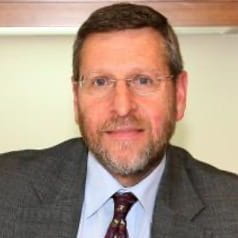 is a senior fellow in the John L. Thornton China Center at the Brookings Institution and host of the Brookings trade podcast,
is a senior fellow in the John L. Thornton China Center at the Brookings Institution and host of the Brookings trade podcast, 
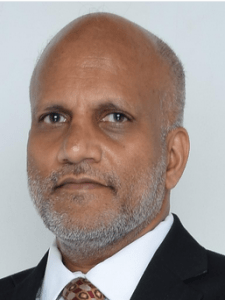 Dr. Sekhar Bonu joined as the Director General of Development Monitoring and Evaluation Office (DMEO) in April 2019. The Government established DMEO in September 2015 as an attached office of the NITI Aayog to fulfil the monitoring and evaluation mandates assigned to NITI Aayog. Before joining NITI Aayog, Dr. Bonu worked with the Asian Development Bank (ADB) in Manila for 15 years. At ADB, he worked in health, urban infrastructure development and regional cooperation, mainly in South Asia. Dr. Bonu worked in the Indian Administrative Services and served as a civil servant in Rajasthan between 1987-2003, among others, as district magistrate, director of primary and secondary education, chief executive officer of state-owned Enterprises. Dr. Sekhar Bonu has a PhD from Johns Hopkins University and is a Chartered Financial Analyst charter holder. He has a wide range of research and operational interests and has published in peer-review journals.
Dr. Sekhar Bonu joined as the Director General of Development Monitoring and Evaluation Office (DMEO) in April 2019. The Government established DMEO in September 2015 as an attached office of the NITI Aayog to fulfil the monitoring and evaluation mandates assigned to NITI Aayog. Before joining NITI Aayog, Dr. Bonu worked with the Asian Development Bank (ADB) in Manila for 15 years. At ADB, he worked in health, urban infrastructure development and regional cooperation, mainly in South Asia. Dr. Bonu worked in the Indian Administrative Services and served as a civil servant in Rajasthan between 1987-2003, among others, as district magistrate, director of primary and secondary education, chief executive officer of state-owned Enterprises. Dr. Sekhar Bonu has a PhD from Johns Hopkins University and is a Chartered Financial Analyst charter holder. He has a wide range of research and operational interests and has published in peer-review journals. Christian Oldiges is a Development Economist, currently serving as Policy Specialist at the Inclusive Growth team of UNDP/BPPS, New York. He brings more than 10 years of experience in the fields of development economics, policy advocacy and social protection. Previously, as Director of Policy Research at the Oxford Poverty and Human Development Initiative (OPHI), University of Oxford, he has been directly involved in developing national MPIs with governments in South Asia and sub-Saharan Africa. In postdoctoral studies at Oxford, he has written about how 270 million people moved out of multidimensional poverty in India within a decade, poverty reduction and its interlinkages with COVID-19, migration, and conflict, as well as on workfare programs and food security in India. He holds a PhD in Economics (Heidelberg University, Germany) and has studied at Hindu College and the Delhi School of Economics, Delhi University.
Christian Oldiges is a Development Economist, currently serving as Policy Specialist at the Inclusive Growth team of UNDP/BPPS, New York. He brings more than 10 years of experience in the fields of development economics, policy advocacy and social protection. Previously, as Director of Policy Research at the Oxford Poverty and Human Development Initiative (OPHI), University of Oxford, he has been directly involved in developing national MPIs with governments in South Asia and sub-Saharan Africa. In postdoctoral studies at Oxford, he has written about how 270 million people moved out of multidimensional poverty in India within a decade, poverty reduction and its interlinkages with COVID-19, migration, and conflict, as well as on workfare programs and food security in India. He holds a PhD in Economics (Heidelberg University, Germany) and has studied at Hindu College and the Delhi School of Economics, Delhi University.


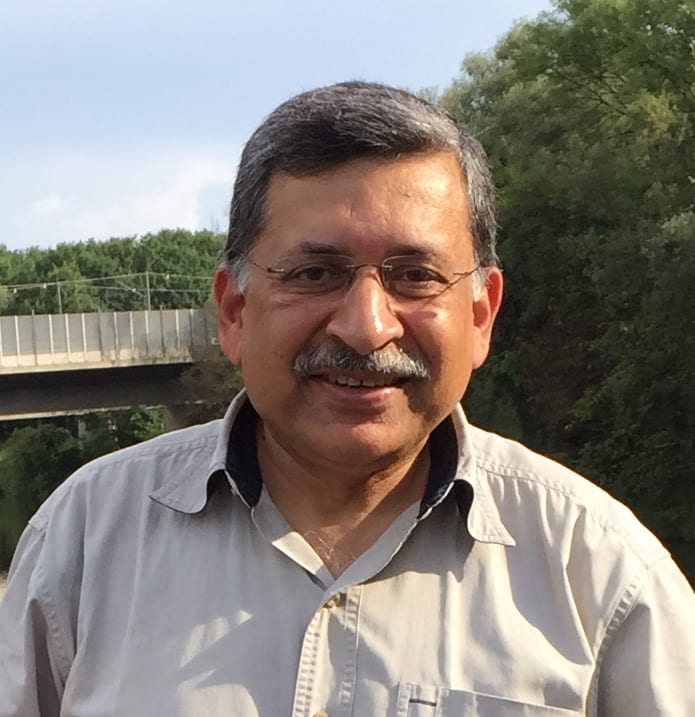

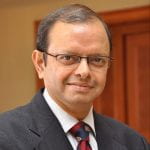

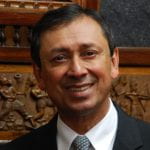



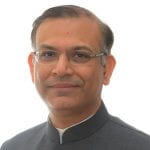

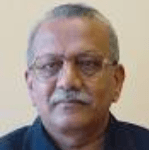 Nitin Desai has had a long and distinguished career in the Government of India and the United Nations. He has also worked for some time in private industry and taught at two UK Universities.
Nitin Desai has had a long and distinguished career in the Government of India and the United Nations. He has also worked for some time in private industry and taught at two UK Universities.




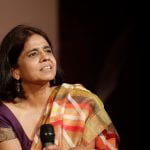
 Laveesh Bhandari is a Senior Fellow at CSEP. Laveesh will lead and develop the climate change capability at CSEP. In addition, he will help define the broad macro agenda and advise on the sub-national reform. Dr Bhandari is an economist, entrepreneur and an environmentalist. He is currently the Director of Indicus Foundation and leads its Environment and Sustainable Livelihoods initiative. Laveesh has published widely on subjects related to sustainable livelihoods, industrial, economic and social reforms in India, economic geography and financial inclusion. He received his PhD in economics from Boston University for which he was awarded the Best thesis in International Economics. He has taught economics in Boston University and IIT Delhi. He has been the managing editor of Journal of Emerging Market Finance, and worked at National Council of Applied Economic Research (NCAER), New Delhi. He has built, seeded, and exited from three companies in the research, analytics and digital domain.
Laveesh Bhandari is a Senior Fellow at CSEP. Laveesh will lead and develop the climate change capability at CSEP. In addition, he will help define the broad macro agenda and advise on the sub-national reform. Dr Bhandari is an economist, entrepreneur and an environmentalist. He is currently the Director of Indicus Foundation and leads its Environment and Sustainable Livelihoods initiative. Laveesh has published widely on subjects related to sustainable livelihoods, industrial, economic and social reforms in India, economic geography and financial inclusion. He received his PhD in economics from Boston University for which he was awarded the Best thesis in International Economics. He has taught economics in Boston University and IIT Delhi. He has been the managing editor of Journal of Emerging Market Finance, and worked at National Council of Applied Economic Research (NCAER), New Delhi. He has built, seeded, and exited from three companies in the research, analytics and digital domain.

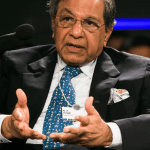



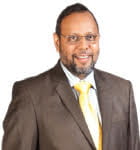



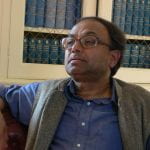
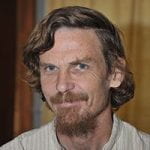

 Rohini Pande is the Henry J. Heinz II Professor of Economics and Director of the Economic Growth Center, Yale University. She is a co-editor of American Economic Review: Insights. Pande’s research is largely focused on how formal and informal institutions shape power relationships and patterns of economic and political advantage in society, particularly in developing countries. She is interested in the role of public policy in providing the poor and disadvantaged political and economic power, and how notions of economic justice and human rights can help justify and enable such change. Her most recent work focuses on testing innovative ways to make the state more accountable to its citizens, such as strengthening women’s economic and political opportunities, ensuring that environmental regulations reduce harmful emissions, and providing citizens effective means to voice their demand for state services. In 2018, Pande received the Carolyn Bell Shaw Award from the American Economic Association for promoting the success of women in the economics profession. She is the co-chair of the Political Economy and Government Group at Jameel Poverty Action Lab (J-PAL), a Board member of Bureau of Research on Economic Development (BREAD) and a former co-editor of The Review of Economics and Statistics. Before coming to Yale, Pande was the Rafik Harriri Professor of International Political Economy at Harvard Kennedy School, where she co-founded Evidence for Policy Design. Pande received a Ph.D. in economics from London School of Economics, a BA/MA in Philosophy, Politics and Economics from Oxford University and a BA in Economics from Delhi University.
Rohini Pande is the Henry J. Heinz II Professor of Economics and Director of the Economic Growth Center, Yale University. She is a co-editor of American Economic Review: Insights. Pande’s research is largely focused on how formal and informal institutions shape power relationships and patterns of economic and political advantage in society, particularly in developing countries. She is interested in the role of public policy in providing the poor and disadvantaged political and economic power, and how notions of economic justice and human rights can help justify and enable such change. Her most recent work focuses on testing innovative ways to make the state more accountable to its citizens, such as strengthening women’s economic and political opportunities, ensuring that environmental regulations reduce harmful emissions, and providing citizens effective means to voice their demand for state services. In 2018, Pande received the Carolyn Bell Shaw Award from the American Economic Association for promoting the success of women in the economics profession. She is the co-chair of the Political Economy and Government Group at Jameel Poverty Action Lab (J-PAL), a Board member of Bureau of Research on Economic Development (BREAD) and a former co-editor of The Review of Economics and Statistics. Before coming to Yale, Pande was the Rafik Harriri Professor of International Political Economy at Harvard Kennedy School, where she co-founded Evidence for Policy Design. Pande received a Ph.D. in economics from London School of Economics, a BA/MA in Philosophy, Politics and Economics from Oxford University and a BA in Economics from Delhi University. Jayati Ghosh taught economics at Jawaharlal Nehru University, New Delhi for nearly 35 years. From January 2020 she will join the University of Massachusetts at Amherst, USA. She has authored and/or edited 19 books (including “Never Done and Poorly Paid: Women’s Work in Globalising India”, Women Unlimited, New Delhi 2009; the co-edited “Elgar Handbook of Alternative Theories of Economic Development, 2014, “Demonetisation Decoded”, Routledge 2017 and “Women workers in the informal economy”, Routledge forthcoming) and nearly 200 scholarly articles. She has received several prizes, including for distinguished contributions to the social sciences in India in 2015; the International Labour Organisation’s Decent Work Research Prize for 2010; the NordSud Prize for Social Sciences 2010, Italy. She has advised governments in India and other countries, including as Chairperson of the Andhra Pradesh Commission on Farmers’ Welfare in 2004, and Member of the National Knowledge Commission of India (2005-09). She is the Executive Secretary of International Development Economics Associates, an international network of heterodox development economists. She has consulted for international organisations including ILO, UNDP, UNCTAD, UN-DESA, UNRISD and UN Women and is member of several international commissions, including the International Commission for the Reform of International Corporate Taxation (ICRICT) and the Commission for Global Economic Transformation of INET. She writes regularly for popular media like newspapers, journals and blogs.
Jayati Ghosh taught economics at Jawaharlal Nehru University, New Delhi for nearly 35 years. From January 2020 she will join the University of Massachusetts at Amherst, USA. She has authored and/or edited 19 books (including “Never Done and Poorly Paid: Women’s Work in Globalising India”, Women Unlimited, New Delhi 2009; the co-edited “Elgar Handbook of Alternative Theories of Economic Development, 2014, “Demonetisation Decoded”, Routledge 2017 and “Women workers in the informal economy”, Routledge forthcoming) and nearly 200 scholarly articles. She has received several prizes, including for distinguished contributions to the social sciences in India in 2015; the International Labour Organisation’s Decent Work Research Prize for 2010; the NordSud Prize for Social Sciences 2010, Italy. She has advised governments in India and other countries, including as Chairperson of the Andhra Pradesh Commission on Farmers’ Welfare in 2004, and Member of the National Knowledge Commission of India (2005-09). She is the Executive Secretary of International Development Economics Associates, an international network of heterodox development economists. She has consulted for international organisations including ILO, UNDP, UNCTAD, UN-DESA, UNRISD and UN Women and is member of several international commissions, including the International Commission for the Reform of International Corporate Taxation (ICRICT) and the Commission for Global Economic Transformation of INET. She writes regularly for popular media like newspapers, journals and blogs. Ajay Chhibber is a Distinguished Visiting Scholar, Institute of International Economic Policy, George Washington University and Non-Resident Senior Fellow, the Atlantic Council, Washington DC. He was earlier Director General, Independent Evaluation Office, Government of India and Distinguished Visiting Professor at the National Institute of Public Finance and Policy (NIPFP), India. He held senior positions at the UN as Assistant Secretary General and Assistant Administrator, UNDP and managed their program for Asia and the Pacific. He also served in senior positions at the World Bank. He has a Ph.D. from Stanford University, a Masters from the Delhi School of Economics. He taught at Georgetown University and at the University of Delhi.
Ajay Chhibber is a Distinguished Visiting Scholar, Institute of International Economic Policy, George Washington University and Non-Resident Senior Fellow, the Atlantic Council, Washington DC. He was earlier Director General, Independent Evaluation Office, Government of India and Distinguished Visiting Professor at the National Institute of Public Finance and Policy (NIPFP), India. He held senior positions at the UN as Assistant Secretary General and Assistant Administrator, UNDP and managed their program for Asia and the Pacific. He also served in senior positions at the World Bank. He has a Ph.D. from Stanford University, a Masters from the Delhi School of Economics. He taught at Georgetown University and at the University of Delhi.
 Bina Agarwal is Professor of Development Economics and Environment at the Global Development Institute, University of Manchester, UK, and former Professor and Director, Institute of Economic Growth, Delhi. She has been President, International Society for Ecological Economics; Vice-President, International Economic Association; President, International Society for Feminist Economics; and held distinguished positions at the Universities of Cambridge, Harvard, Princeton, Michigan, Minnesota, and the New York University School of Law. Dr. Agarwal’s publications include the multiple award-winning book, A Field of One’s Own: Gender and Land Rights in South Asia (Cambridge University Press, 1994), Gender and Green Governance (OUP, 2010) and Gender Challenges (OUP, 2016), a three volume compendium of her selected papers on Agriculture, Property, and the Environment. Her pioneering work on gender inequality in property and land and on environmental governance, has had global impact. Her many awards include a Padma Shri, 2008; book prizes; the Leontief Prize 2010; Louis Malassis Scientific Prize 2017; and the International Balzan Prize, 2017.
Bina Agarwal is Professor of Development Economics and Environment at the Global Development Institute, University of Manchester, UK, and former Professor and Director, Institute of Economic Growth, Delhi. She has been President, International Society for Ecological Economics; Vice-President, International Economic Association; President, International Society for Feminist Economics; and held distinguished positions at the Universities of Cambridge, Harvard, Princeton, Michigan, Minnesota, and the New York University School of Law. Dr. Agarwal’s publications include the multiple award-winning book, A Field of One’s Own: Gender and Land Rights in South Asia (Cambridge University Press, 1994), Gender and Green Governance (OUP, 2010) and Gender Challenges (OUP, 2016), a three volume compendium of her selected papers on Agriculture, Property, and the Environment. Her pioneering work on gender inequality in property and land and on environmental governance, has had global impact. Her many awards include a Padma Shri, 2008; book prizes; the Leontief Prize 2010; Louis Malassis Scientific Prize 2017; and the International Balzan Prize, 2017.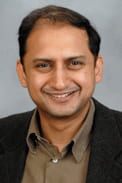 Viral V. Acharya is the C.V. Starr Professor of Economics in the Department of Finance at New York University Stern School of Business (NYU-Stern) and an Academic Advisor to the Federal Reserve Banks of New York and Philadelphia. Viral was a Deputy Governor at the Reserve Bank of India (RBI) during 23rd January 2017 to 23rd July 2019 in charge of Monetary Policy, Financial Markets, Financial Stability, and Research. His speeches while at the RBI will release in the end of July 2020 in the form of a book titled “Quest for Restoring Financial Stability in India” (SAGE Publications India), with a new introductory chapter “Fiscal Dominance: A Theory of Everything in India”. Viral completed Bachelor of Technology in Computer Science and Engineering from Indian Institute of Technology, Mumbai in 1995 and Ph.D. in Finance from NYU-Stern in 2001. Prior to joining Stern, he was at London Business School (2001-2008), the Academic Director of the Coller Institute of Private Equity at LBS (2007-09) and a Senior Houblon-Normal Research Fellow at the Bank of England (Summer 2008). Viral’s primary research interest is in theoretical and empirical analysis of systemic risk of the financial sector, its regulation and its genesis in government-induced distortions, an inquiry that cuts across several other strands of research – credit risk and liquidity risk, their interactions and agency-theoretic foundations, as well as their general equilibrium consequences. He has published articles in the American Economic Review, Journal of Finance, Journal of Financial Economics, Review of Financial Studies, Review of Finance, Journal of Business, Journal of Financial Intermediation, Rand Journal of Economics, Journal of Monetary Economics, Journal of Money, Credit and Banking, and Financial Analysts Journal. He is currently associate editor of the Review of Corporate Finance Studies (RCFS, 2011-) and Review of Finance (2006-), and was an editor of the Journal of Financial Intermediation (2009-12) and associate editor of the Journal of Finance (2011-14).
Viral V. Acharya is the C.V. Starr Professor of Economics in the Department of Finance at New York University Stern School of Business (NYU-Stern) and an Academic Advisor to the Federal Reserve Banks of New York and Philadelphia. Viral was a Deputy Governor at the Reserve Bank of India (RBI) during 23rd January 2017 to 23rd July 2019 in charge of Monetary Policy, Financial Markets, Financial Stability, and Research. His speeches while at the RBI will release in the end of July 2020 in the form of a book titled “Quest for Restoring Financial Stability in India” (SAGE Publications India), with a new introductory chapter “Fiscal Dominance: A Theory of Everything in India”. Viral completed Bachelor of Technology in Computer Science and Engineering from Indian Institute of Technology, Mumbai in 1995 and Ph.D. in Finance from NYU-Stern in 2001. Prior to joining Stern, he was at London Business School (2001-2008), the Academic Director of the Coller Institute of Private Equity at LBS (2007-09) and a Senior Houblon-Normal Research Fellow at the Bank of England (Summer 2008). Viral’s primary research interest is in theoretical and empirical analysis of systemic risk of the financial sector, its regulation and its genesis in government-induced distortions, an inquiry that cuts across several other strands of research – credit risk and liquidity risk, their interactions and agency-theoretic foundations, as well as their general equilibrium consequences. He has published articles in the American Economic Review, Journal of Finance, Journal of Financial Economics, Review of Financial Studies, Review of Finance, Journal of Business, Journal of Financial Intermediation, Rand Journal of Economics, Journal of Monetary Economics, Journal of Money, Credit and Banking, and Financial Analysts Journal. He is currently associate editor of the Review of Corporate Finance Studies (RCFS, 2011-) and Review of Finance (2006-), and was an editor of the Journal of Financial Intermediation (2009-12) and associate editor of the Journal of Finance (2011-14). Liaquat Ahamed is the author of the critically acclaimed best-seller, Lords of Finance: The Bankers Who Broke the World, about central bankers during the Great Depression of 1929-1932. The book won the 2010 Pulitzer Prize for History, the 2010 Council on Foreign Relations Arthur Ross Gold Medal, and the 2009 Financial Times-Goldman Sachs Best Business Book of the Year Award. Ahamed was a professional investment manager for twenty-five years. He has worked at the World Bank in Washington, D.C., and the New York-based partnership of Fischer Francis Trees and Watts, where he served as chief executive. He is currently a director of the Putnam Funds. He is on the board of trustees of the Journal of Philosophy, the Sun Valley Writers’ Conference and a former trustee of the Brookings Institution and the New America Foundation. He has degrees in economics from Harvard and Cambridge.
Liaquat Ahamed is the author of the critically acclaimed best-seller, Lords of Finance: The Bankers Who Broke the World, about central bankers during the Great Depression of 1929-1932. The book won the 2010 Pulitzer Prize for History, the 2010 Council on Foreign Relations Arthur Ross Gold Medal, and the 2009 Financial Times-Goldman Sachs Best Business Book of the Year Award. Ahamed was a professional investment manager for twenty-five years. He has worked at the World Bank in Washington, D.C., and the New York-based partnership of Fischer Francis Trees and Watts, where he served as chief executive. He is currently a director of the Putnam Funds. He is on the board of trustees of the Journal of Philosophy, the Sun Valley Writers’ Conference and a former trustee of the Brookings Institution and the New America Foundation. He has degrees in economics from Harvard and Cambridge. Rakesh Mohan is one of India’s senior-most economic policymakers and an expert on central banking, monetary policy, infrastructure and urban affairs. Most recently he was executive director at the International Monetary Fund in Washington, D.C., representing India, Sri Lanka, Bangladesh and Bhutan, and chairman, National Transport Development Policy Committee, Government of India, in the rank of a Minister of State. He is also a former deputy governor of the Reserve Bank of India. As deputy governor he was in charge of monetary policy, financial markets, economic research and statistics. In addition to serving in various posts for the Indian government, including representing India in a variety of international forums such as Basel and G20, Mohan has worked for the World Bank and headed prestigious research institutes. He is also Senior Advisor to the McKinsey Global Institute and Distinguished Fellow of Brookings India. Mohan has written extensively on urban economics, urban development, Indian economic policy reforms, monetary policy and central banking.
Rakesh Mohan is one of India’s senior-most economic policymakers and an expert on central banking, monetary policy, infrastructure and urban affairs. Most recently he was executive director at the International Monetary Fund in Washington, D.C., representing India, Sri Lanka, Bangladesh and Bhutan, and chairman, National Transport Development Policy Committee, Government of India, in the rank of a Minister of State. He is also a former deputy governor of the Reserve Bank of India. As deputy governor he was in charge of monetary policy, financial markets, economic research and statistics. In addition to serving in various posts for the Indian government, including representing India in a variety of international forums such as Basel and G20, Mohan has worked for the World Bank and headed prestigious research institutes. He is also Senior Advisor to the McKinsey Global Institute and Distinguished Fellow of Brookings India. Mohan has written extensively on urban economics, urban development, Indian economic policy reforms, monetary policy and central banking.